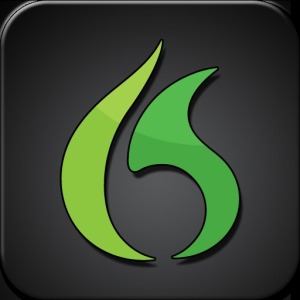por
Brendon Nafziger, DOTmed News Associate Editor | January 26, 2012

Dragon Go!, the
consumer version for
Andriod phones, was
shown at CES 2012
A doctor is about to prescribe an antibiotic, but is a bit worried it might interact with an antidepressant her patient is currently taking, Wellbutrin. So, what does she do? It's possible, in the near future, she might simply pull out her phone and ask it.
At the recently wrapped up 2012 Consumer Electronics Show, Nuance brought Android phone owners a program similar to Siri, the popular voice-command search feature released by Apple in its most recent iPhone rollout. The free app, Dragon Go!, is strictly for consumer use. But Nuance, which licenses some of its technology for Siri (Nuance and Apple are pretty closed-lipped about specifics), also has a medical version in the works.
A prototype of the as-yet-unnamed app will make its public debut at HIMSS 2012 next month, but it will be a quiet one.



Ad Statistics
Times Displayed: 29522
Times Visited: 744 Ampronix, a Top Master Distributor for Sony Medical, provides Sales, Service & Exchanges for Sony Surgical Displays, Printers, & More. Rely on Us for Expert Support Tailored to Your Needs. Email info@ampronix.com or Call 949-273-8000 for Premier Pricing.
"We'll carry a few of them around in our pockets," Joe Petro, senior vice president of research and development with Nuance Healthcare, told DOTmed News.
Nuance made its name in speech recognition software. And the product, which Nuance plans to release commercially later this year, takes advantage of what Petro calls the "next evolutionary step" in the technology.
"We think we have the speech dictation down. We're chewing at the upper edge of accuracy, getting from 96 to 99 percent," he said. "Most of the stuff you see from an innovation perspective in 2012 will be about exploiting that understanding. From the understanding perspective, it's almost untapped."
Language processing
In essence, the technology would work by breaking down spoken language, categorizing it and mapping the categories onto a series of medically oriented databases - for instance, for drug interaction (as in our antibiotic and antidepressant example) - and then returning a context-specific result.
As it acts more like a reference book than a computer-aided diagnosis tool, the technology likely wouldn't fall under the Food and Drug Administration's purview. Still, the company hopes doctors can find it helpful. The drug interaction use case is, in fact, rather important here, as Petro said Nuance sees a lot of potential for this technology in helping doctors navigate the perilous waters of pharmacology.
"One of the big challenges [for doctors] is keeping up with all the pharmaceutical stuff," he said. Treatment protocols and dosing information are frequently updated and quite complex, so having a ready reference to aid physicians in prescribing drugs to someone already taking others could be useful.
Of course, this feat, rapidly and intelligently finding answers to technical questions, bumps up pretty close to the turf of another much-ballyhooed technological figure from last year that Nuance also is working on: Watson.

